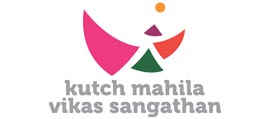Access to Social Justice
Kutch and its women: The Changing Scenario:
The focus of KMVS’s socio-legal interventions in the first two decades (as other similar interventions in the country) focused on building consciousness on issues of violence amongst women, advocacy for stronger legislations for tackling domestic violence, building capacities and women’s access to the judicial system, and training a core cadre of para legals who took up the above activities. However the reality is that despite growing awareness amongst women, greater access to laws, and better laws to counter domestic and other forms of violence, gender based violence and concerns around safety and security of women and the girl child, is increasing tremendously.
 If we look at the figures of Kutch, the official figures shows that during the decade 1991-2000, in total 948 cases were registered under the IPC Ss. 498 A and 306 (which respectively stands for physical-mental cruelty and unnatural death) which have escalated to 1559 in the next decade of 2001-2010(1). This clearly shows a staggering 40% rise in the number of registered cases. Since KMVS has launched “Hello Sakhi” in May 2010, about 636 cases have been registered in the past one year. Given this experience, we have reasons to believe that the number of cases being registered is still low. This juxtaposed with the sex ratio of Kutch, which has declined from 942 in 2001 to 907 in 2010 according to the Census, reflects the deteriorating situation of women and the girl child in the region.
If we look at the figures of Kutch, the official figures shows that during the decade 1991-2000, in total 948 cases were registered under the IPC Ss. 498 A and 306 (which respectively stands for physical-mental cruelty and unnatural death) which have escalated to 1559 in the next decade of 2001-2010(1). This clearly shows a staggering 40% rise in the number of registered cases. Since KMVS has launched “Hello Sakhi” in May 2010, about 636 cases have been registered in the past one year. Given this experience, we have reasons to believe that the number of cases being registered is still low. This juxtaposed with the sex ratio of Kutch, which has declined from 942 in 2001 to 907 in 2010 according to the Census, reflects the deteriorating situation of women and the girl child in the region.
This increase cannot be attributed solely to the increased awareness and reporting. There are many reasons for it, for instance:
- Rapid industrialization in the region has led to changed attitude of people. However this change is not towards openness and equality – the girls continue to be raised with the belief that “women should endure” and “they should not resist/protest” – but a reinforcement of stereotypes.
- The social indicators have also changed in the post 2001, after the devastating earthquake. Increasing aspirations, consumerism, and economic changes/opportunities on the one hand, and economic stress on the other hand is defining expectations from relationships and marriages, for both, men and women. The following are some evidences for this. The Muslim community does not have a traditional system of dowry; however KMVS deals with cases of dowry harassment and death amongst the Muslim communities now. The cattle rearing communities have migrated towards cities and the women have taken up jobs of domestic help and have abandoned their traditional embroidery. Thus, there is a churning process in the communities now, leading to changed societal patterns.
- Changing family patterns, increasing number of nuclear families, etc has affected women’s lives in many ways. Over and above other problems, it has led to loss of potential family members who can mediate, or deter physical violence by male partners. This has resulted in further increase of violence on women.
- Heavy industrialization has also resulted in migration of communities- who migrate to cities, while laborers from other States are migrating to Kutch. This has increased the gravity of security issues of women.
- In mitigating domestic violence the PWDVA, popularly known as DV Act, is not having a cognizable impact. Government is also not taking steps to ensure better structure to implement the act. There is lack of proper staff and present staff also lack in capacity to implement it.
[1] This data has been provided by the Dept. of Police, Bhuj-Kutch in response to KMVS’s request for this information. This is from the records of the local Crime Bureau.
